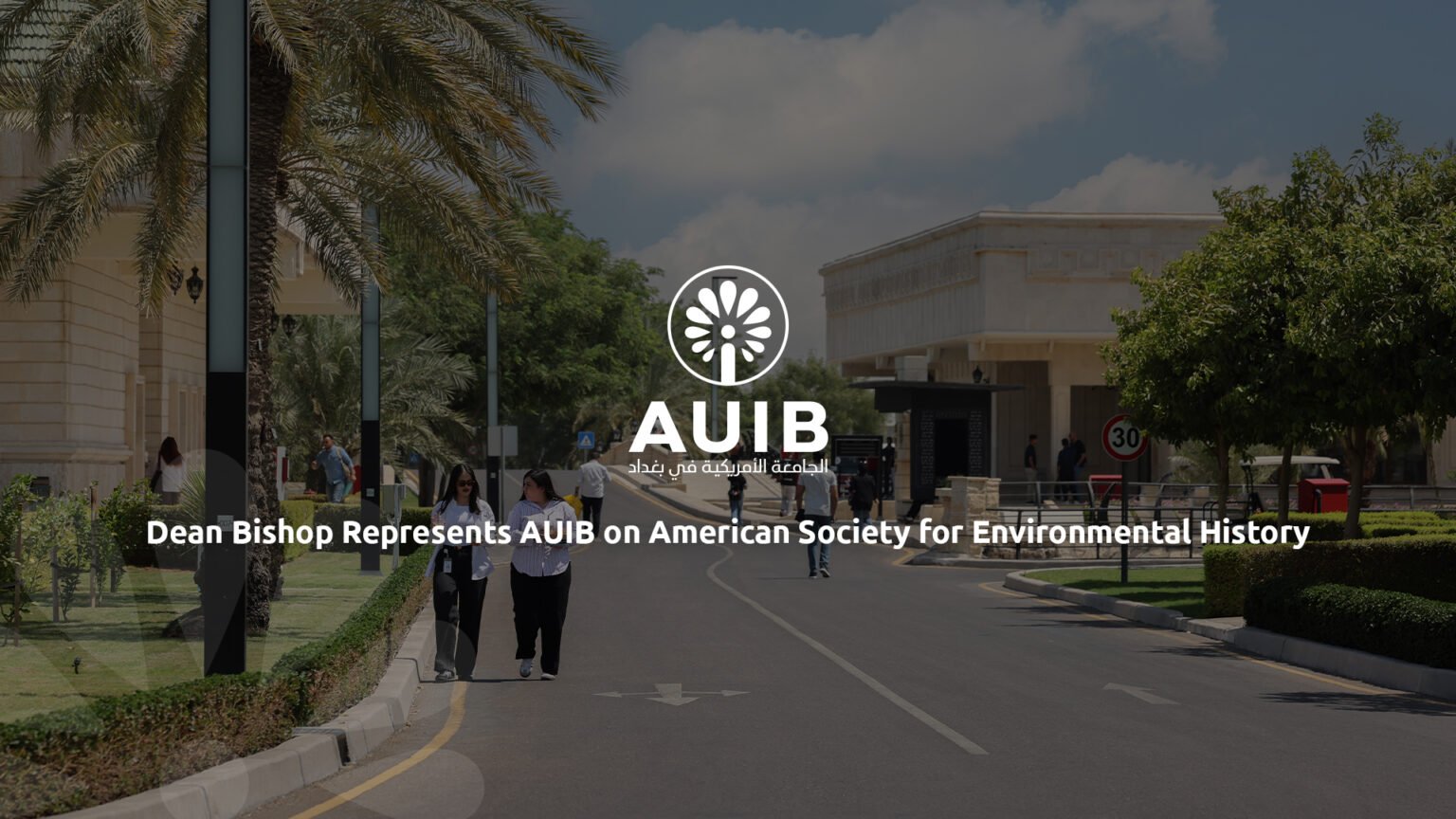The American University of Iraq-Baghdad (AUIB) is proud to announce that the Dean of its College of International Studies, Dr. Elizabeth Bishop, has been appointed a member of the George Perkins Marsh book prize committee, representing AUIB on the American Society for Environmental History (ASEH). The committee members have lately read 65 books published since November 2023 and shortlisted a number of titles as candidates for the prize. The happy winner will be announced at the ASEH annual meeting during April this year.
But what is Environmental History, and why is it important?
The concept of Environmental History is one that is revisited and debated by the committee every year: “Is it labor history, the history of agriculture, forestry, people’s ideas about the natural environment, etc.…? We have no single answer; the choice of the winning book will be the answer for a given year,” says Dean Bishop. She believes that one of the award-winning titles that best capture the expanse of the concept is Ruth Rogaski’s “Knowing Manchuria” (University of Chicago Press, 2022), at the intersection of China, Russia, Korea, and Mongolia, where projects of environmental studies overlap with tools of geopolitical struggle, such as the study and application of biological warfare. The aspect that Dean Bishop appreciates most about Rogaski’s work is that it bridges “that entire spectrum, from the embodied to the cerebral,” and draws on multiple archives, covering diverse or even conflicting viewpoints, such as those of “Russian content creators (ethnographers, botanists, etc.) of the 19th and the 20th centuries, as they were travelling to Manchuria and writing their notes that were reflective of their ideals as Russian intelligentsia,” but also the works of Chinese and Korean scholars, as examples, as well as select publications of the period.
The winner of last year’s George Perkins Marsh book prize was Tamar Novick’s “Milk and Honey: Technologies of Plenty in the Making of a Holy Land,” published by MIT Press. The book also showcases the wide scope of Environmental History, as it covers the processes of dispossession and attempted erasure not only from geography, but also history, of the indigenous population of Palestine at the hands of Zionist settlers. Novick’s work focuses on the agricultural and technological transformations brought about by settlers and their impact on traditional Palestinian ways of life.
